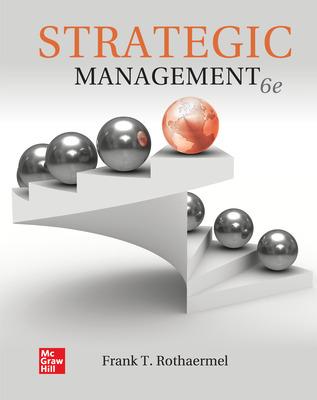1. Who is responsible for the opioid crisis: Purdue Pharma, the FDA, patients, people with a drug...
Question:
1. Who is responsible for the opioid crisis: Purdue Pharma, the FDA, patients, people with a drug use disorder, or all the above? Where lies the blame? Anand Giridharadas, New York Times bestselling author of Winners Take All: The Elite Charade of Changing the World, concludes: “if you look at the way in which the opioid crisis killed people, it is a direct, malicious, forthright set of choices by various actors that predictably, reliably, foreseeably killed very large numbers of people.” Do you agree with this assessment? Discuss.
2. The Sackler family and executives of Purdue Pharma maintain that they have done nothing wrong. They argue that all they did was develop and market an innovative drug that the FDA approved. The Sacklers firmly believe they did something good with OxyContin, which has allowed millions of people to cope with debilitating pain. They review pain (arthritis, back pain, and so on) as heavily undertreated in the United States. They maintain that the problem lies with the drug abusers and not with the company that developed the drug. Advancing a libertarian argument, the Sacklers liken their company to a gun manufacturer and argue that the gun manufacturer doesn’t shoot people, but people kill people using guns. To date, none of the Sackers has been convicted of any wrongdoing. They maintain their innocence and feel they are scapegoats for the drug-addiction crisis and for other pharma companies that also sold opioids. How do you assess this viewpoint?
3. Discuss the tension between ethical actions and legal actions. Some tactics might be legal but unethical. What should an executive do when faced with this tension? What would you do?
4. Purdue Pharma’s significant innovation was the time-released version of codeine, which led to OxyContin. Purdue Pharma promoted the drug as less addictive, a claim the FDA approved. Yet, the claim was phony. It was based not on a scientific study but on a small anecdotal sample described in a letter to the editor of a leading medical journal (JAMA or Journal of the American Medical Association). When do marketing claims become unethical?
5. In Chapter Case 12, we learned that two Theranos executives, Elizabeth Holmes and Sunny Balwani will face prison for committing fraud. Yet, not a single death was caused by Theranos’ medical devices. In contrast, over 1 million Americans have died of despair with most of those deaths directly or indirectly related to opioid addictions, which started with OxyContin’s marketing push. None of the Sacklers has been convicted, nor have they lost the billions they stashed away in overseas trusts. Where is the justice? How do you assess this situation, especially since many of the Sackler family members held similar executive positions at Purdue Pharma as Holmes and Balwani at Theranos? And both companies were private, not publicly owned stock companies.
6. The consultancy McKinsey paid $600 million to settle investigations for its role in advising Purdue Pharma on how to push OxyContin sales while not admitting any wrongdoing. The senior partners at McKinsey were unhappy because each partner takes a share of the company’s profits, which are now $600 million less due to the settlement. To show their disapproval, McKinsey partners did not renew the term of their CEO, an unusual occurrence. They argued that McKinsey did nothing wrong and they were entitled to the $600 million. And, if it went that far, McKinsey should have fought any lawsuit. Does McKinsey have any blame for the opioid addiction crisis? How do you assess the sentiment of the company’s senior partners? What would you do if you were working at McKinsey and were assigned to be part of the Purdue Pharma consulting project? Discuss.
Step by Step Answer:






